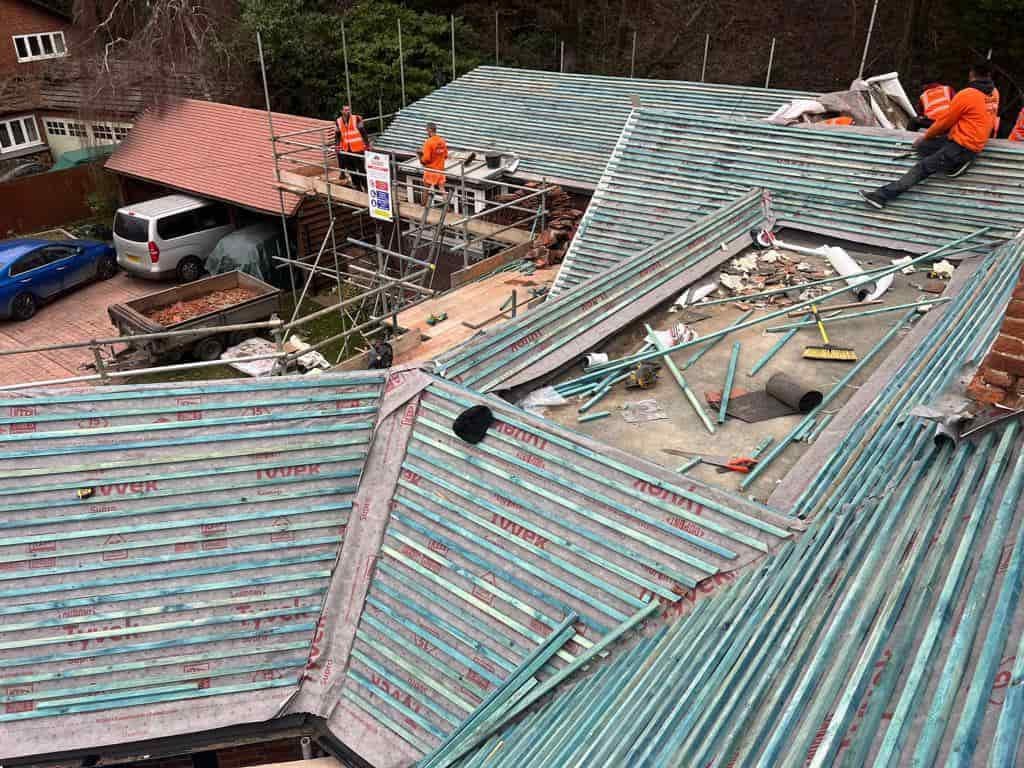The Role of Roof Maintenance in Preventing Slipped Tiles
Introduction: Your roof is a critical component of your home’s structural integrity, and its primary purpose is to protect you and your property from the elements. One common issue that homeowners often face is slipping roof tiles. These displaced tiles can compromise the effectiveness of your roof and lead to leaks, water damage, and even structural issues. However, regular roof maintenance can significantly reduce the risk of slipping tiles. In this blog post, we’ll explore the essential role that roof maintenance plays in preventing slipping tiles.
1. Inspection and Detection: Regular roof inspections are the first defence against slipped tiles. Inspecting your roof periodically can identify early signs of damage or tile displacement. Look for cracked, loose, or missing tiles during these inspections.
2. Cleaning and Debris Removal: Leaves, branches, and debris can accumulate on your roof over time, creating an environment where slipped tiles are more likely to occur. Regularly clean your roof to prevent debris from becoming trapped under tiles, which can cause them to lift or shift.
3. Gutter Maintenance: Clogged or damaged gutters can lead to water buildup on your roof, weakening the adhesive properties of roofing materials and increasing the likelihood of tiles slipping. Ensure your gutters are clean and in good condition, directing water away from the roof.
4. Addressing Mold and Algae Growth: Mold, algae, and moss can grow on your roof, causing tiles to become slippery and dislodged. Roof cleaning and treatment can help prevent the growth of these organisms and maintain the integrity of your tiles.
5. Repairing Damaged Roofing Materials: Roofing materials can deteriorate over time due to exposure to the elements. Cracked or damaged tiles should be repaired or replaced promptly to prevent further damage and potential tile slippage.
6. Sealing and Adhesive Maintenance: The adhesive properties of roofing materials can degrade with time. Regularly inspect and maintain the seals and adhesives used to secure roof tiles. This will help ensure that tiles remain firmly in place.
7. Professional Roof Inspections: While DIY roof inspections are essential, it’s also advisable to have your roof professionally inspected regularly. Experienced roofing contractors can identify potential issues that may not be apparent to the untrained eye and provide expert recommendations for maintenance and repairs.
Conclusion: Preventing slipped roof tiles is a key aspect of roof maintenance, and it’s vital for protecting your home and investment. Regular inspections, cleaning, and timely repairs are essential steps in maintaining the stability of your roof tiles. By taking a proactive approach to roof maintenance, you can extend the lifespan of your roof and enjoy peace of mind, knowing that your home is well protected from the elements. If you notice any signs of slipped tiles or roof damage, don’t hesitate to contact a professional roofing contractor for a thorough assessment and necessary repairs.
Call us on: 01302 490 393
Click here to find out more about EDS Roofing Stainforth
Click here to complete our contact form and see how we can help with your roofing needs.

